Further Reading
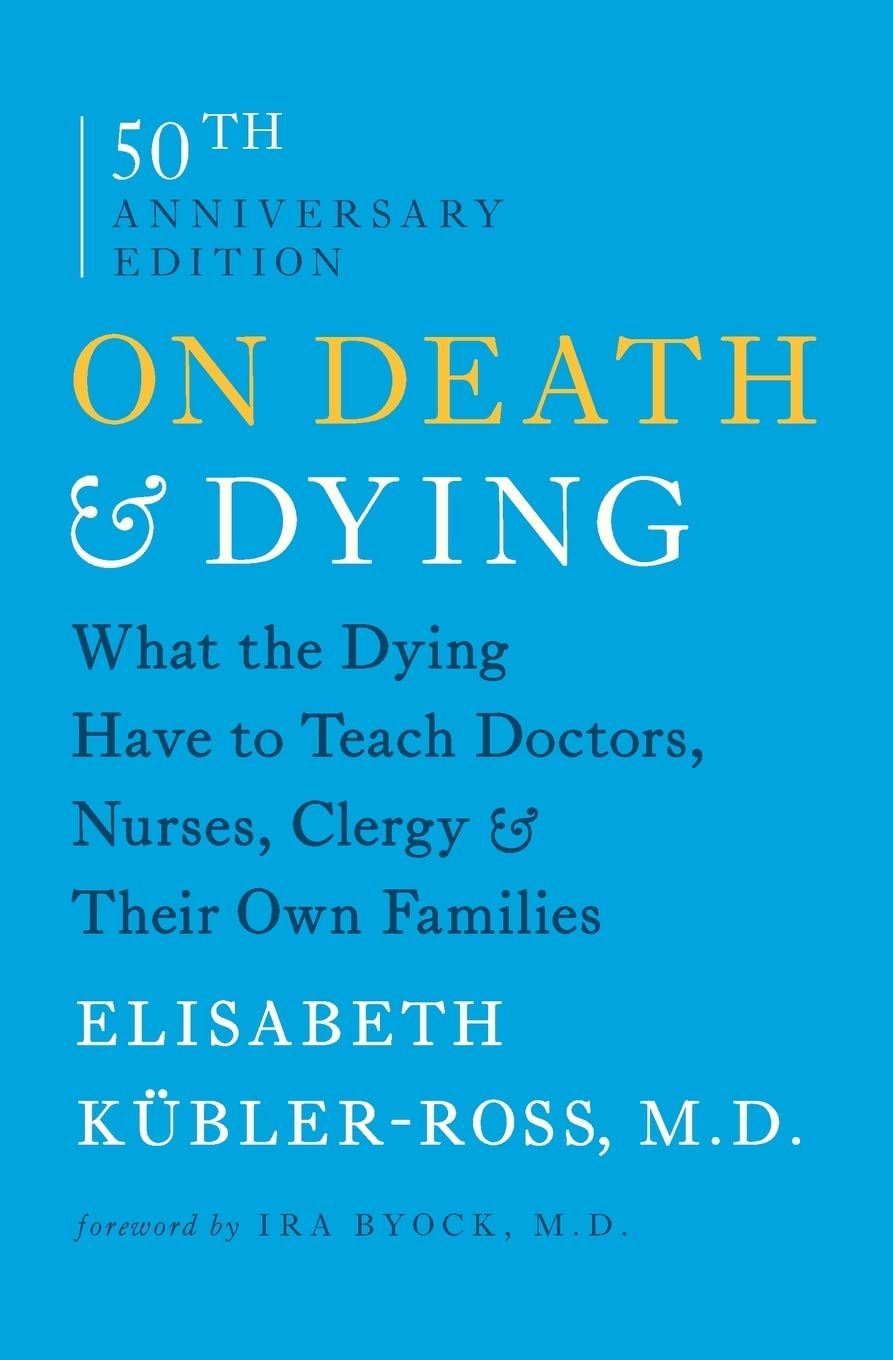
I think of Elizabeth Kubler-Ross as the great grand-warrioress of exploring grief and death (denying) in depth. As such, when I decided I was going to write a book about grief, this was the first book I read. In On Death and Dying, Kubler-Ross documents and challenges the authoritarian decorum of the day- whereby doctors of that time avoided uncomfortable, forthright conversations with terminal patients and their families. She was one of the first to truly listen to terminally ill patients and document their feelings and needs. From this, she outlined the five stages of grief the terminally ill felt when anticipating one’s own death. In response to her groundbreaking book — a cultural revolution and a raised awareness followed in the treatment of both the aging and the dying, hopefully with greater attention given to enabling dignity, compassion, humility, and fellowship. For a similar, more up-to-date book with similar intentions, see Atul Gawande’s Being Mortal.
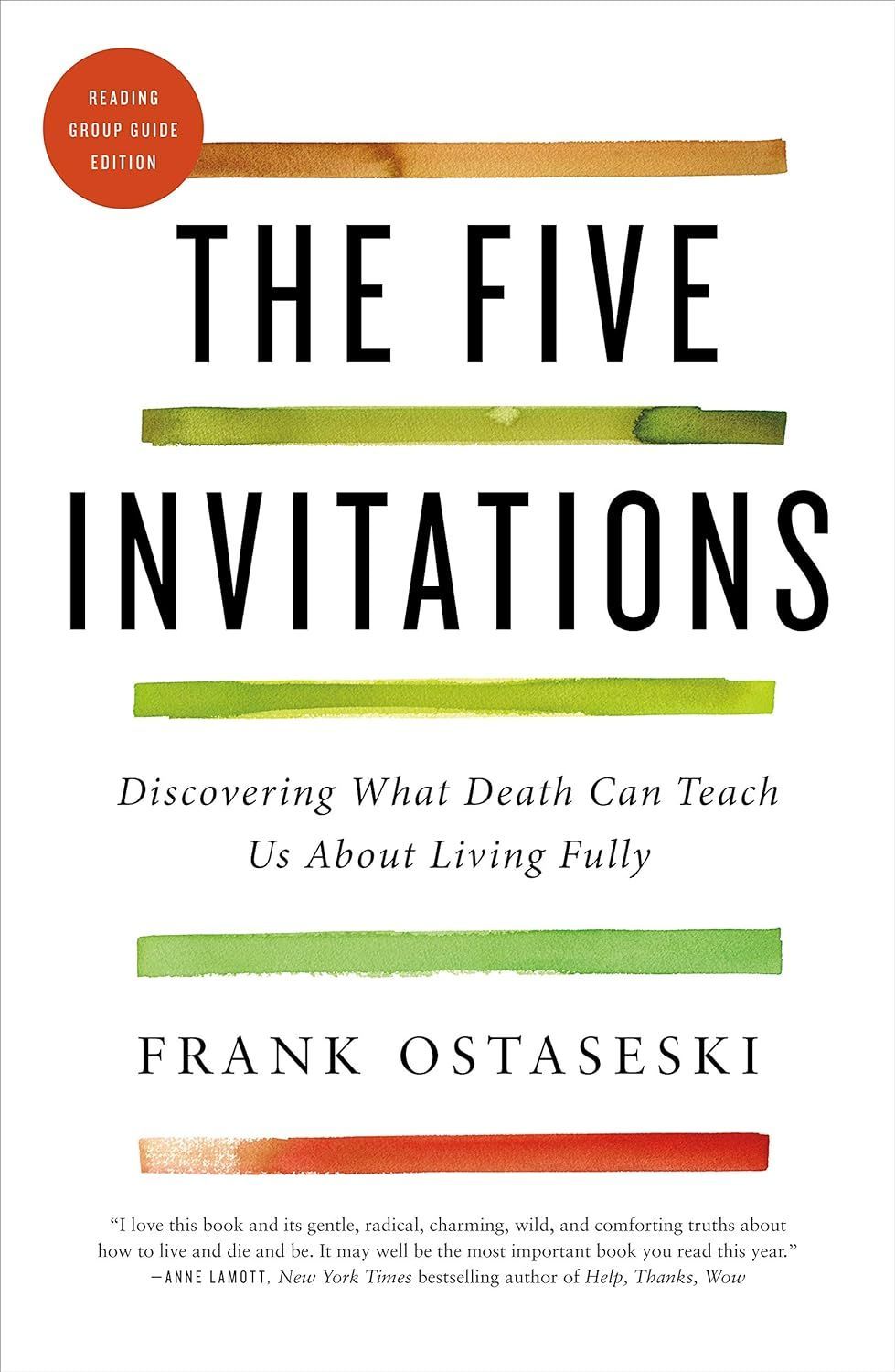
With an abundance of experience, Zen Hospice co-founder, Frank Ostaskeski’s The Five Invitations: Discovering What Death Can Teach Us About Living Fully, is an invitation to awaken our awareness of death, which in turn can help us better wake up and fully live our lives. The book begins with the Five Invitations clearly stated. The chapters that follow provide examples, anecdotes and stories drawn from both his own illness and the patients experienced at the Zen Hospice House. Off all the grief books I’ve read, this one is definitely in my top favorites.
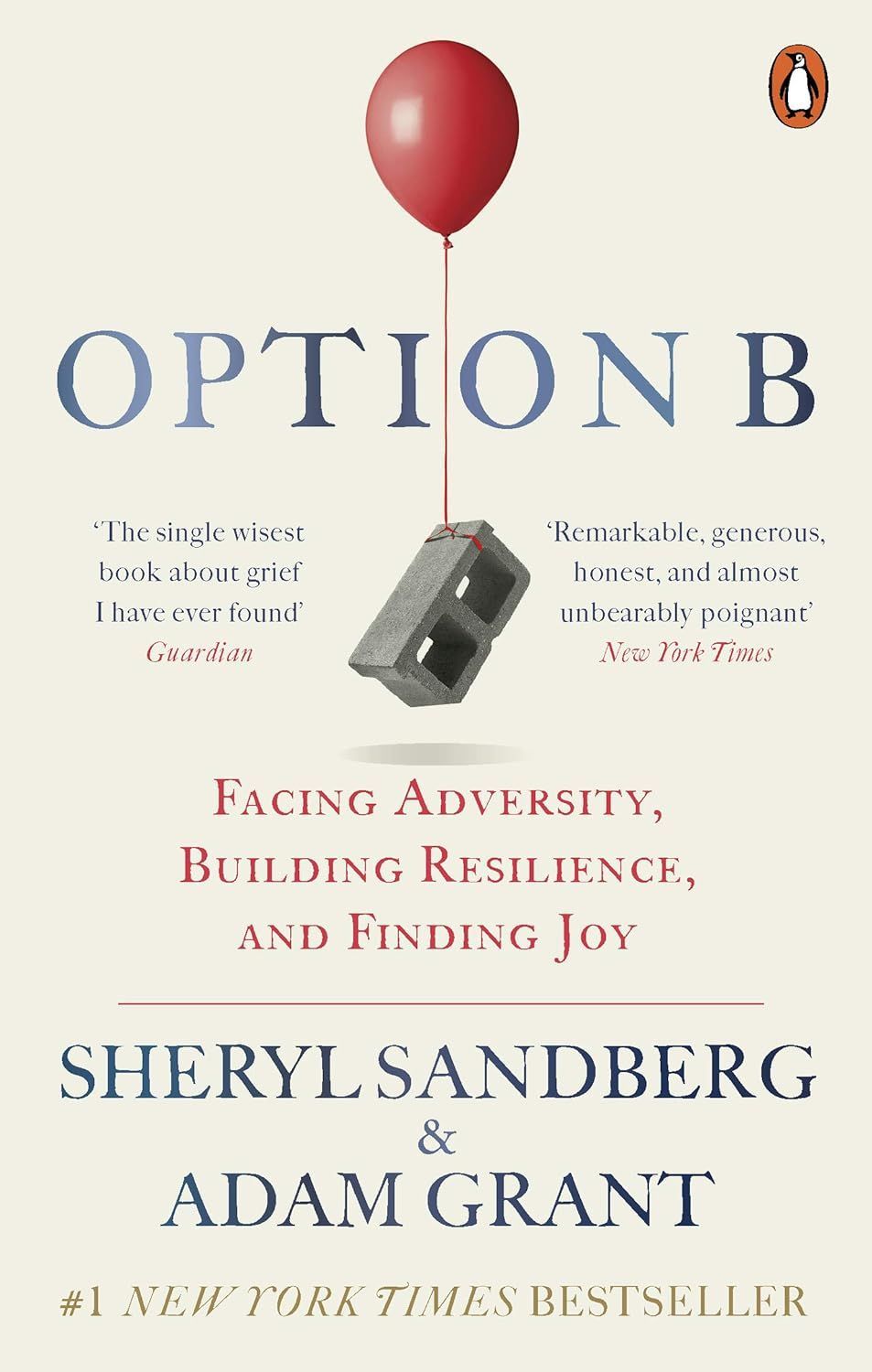
Option B: Facing Adversity, Building Resilience and Finding Joy was written by Sheryl Sandberg and Adam Grant. Option B combines Sandberg’s personal insights with Adam’s eye-opening research on finding strength in the face of adversity, beginning with the gut-wrenching moment when Sheryl finds her husband who died of an arrhythmia caused by undiagnosed coronary heart disease. The narrative documents Sandberg’s insights and feelings from the moment she found her husband, telling their children, planning and attending the funeral, going back to work, and now living as a single mother- to the thought of allowing herself happiness and dating again. Grant’s suggestions and wisdom to assist Sheryl in her healing are sprinkled throughout, in which case it is part self-help and part memoir.
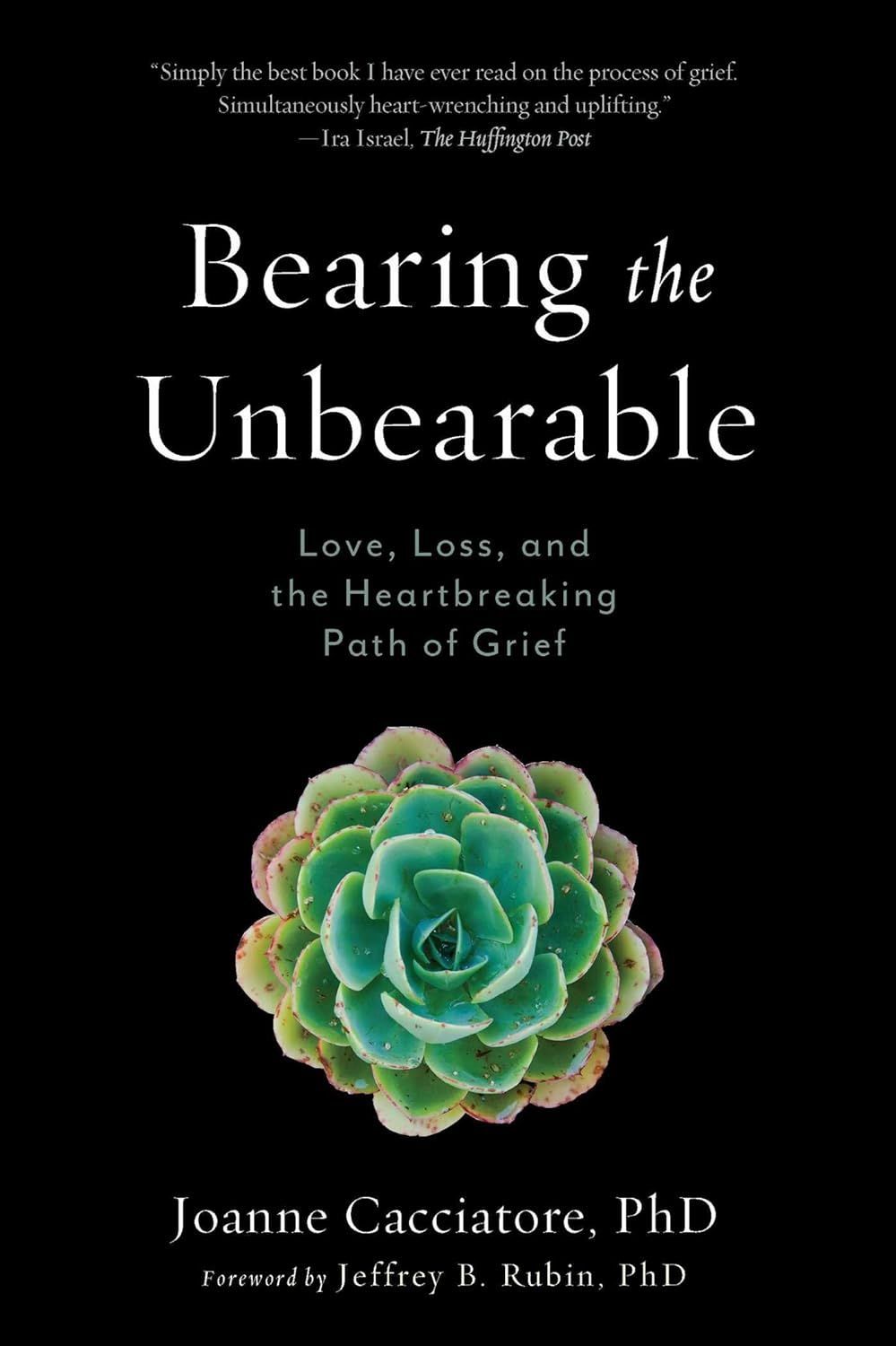
Written by a grief counselor and bereavement educator, Zen priest and researcher, Dr. Joanne Cacciatore’s Bearing the Unbearable: Love, Loss and the Heartbreaking Path of Grief is organized into fifty stand-alone chapters. The stories and anecdotes are primarily from those who have lost a child. The chapters capture both the pain and redemption of grief, drawn from patients in her therapy practice and the pain felt in losing her newborn child. Cacciatore captures all the facets and angles of grief and the pain of loss and provides excellent suggestions, for example, establishing rituals or micro rituals, self-care and sleep and kindness projects.
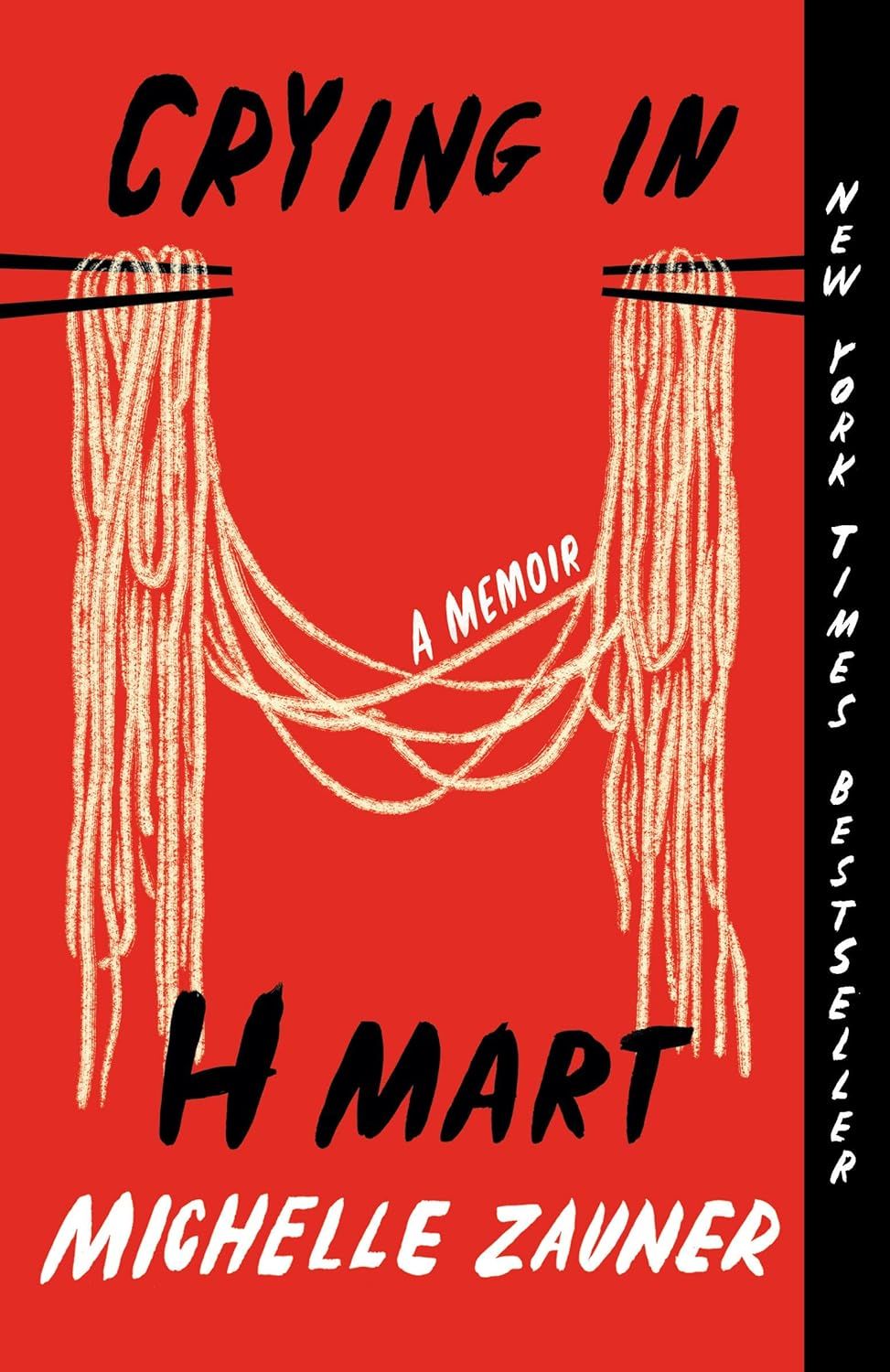
Crying in H Mart: A Memoir written by Michelle Zauner, the lead singer of the band, Japanese Breakfast. Zauner’s memoir recounts her youth and the story of the sometimes tumultuous relationship she had with her Korean mother during adolescence. Raw and authentic in detail, the author recounts learning of her mom’s diagnosis of terminal cancer, caring for her, and ultimately her death. The one bond she and her mother shared together was their love of both cooking and eating Korean food, a common thread reappearing throughout the book. The memoir is lovingly written and descriptive, providing deep insights into how the author thought and felt during the experience of growing up with and losing her mom and the grief associated with her death.
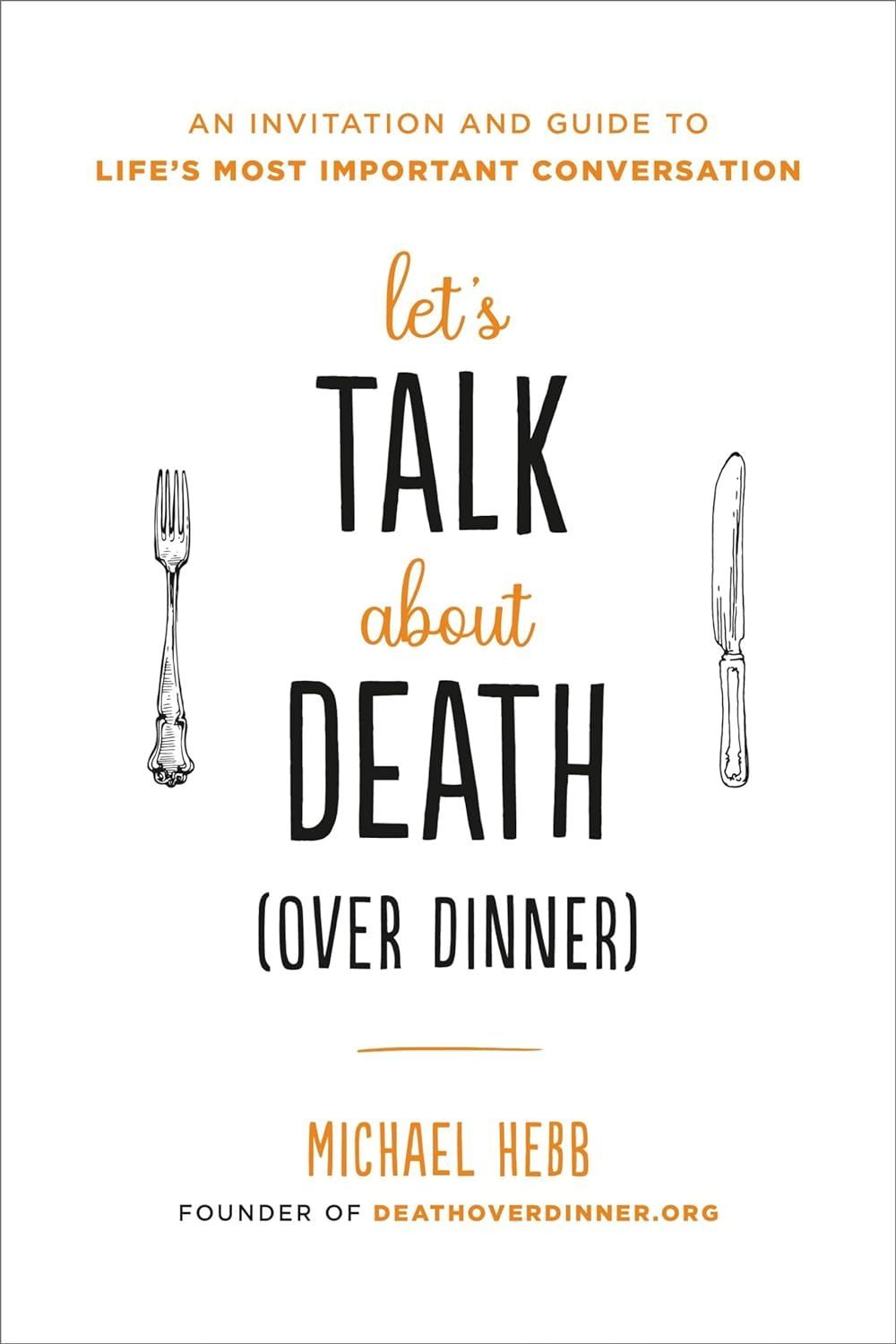
Michael Hebb’s Let’s Talk about Death (over Dinner): An Invitation and Guide to Life’s Most Important Conversation faces head-on the importance of the conversation surrounding death. He addresses both the importance of discussion regarding practical considerations such as wills and Do Not Resuscitate options, but also, what we fear and what we hope surrounding our own deaths, and how we want to be remembered. Hebb cofounded the organization Death Over Dinner- which encourages people to meet for dinner, eat, and talk about the one inevitable thing we have in common – death. In his book, he offers practical advice on how to have these conversations. He shares tested prompts, and conversation starters from the spiritual to the practical, sometimes surprising, and funny- all to address death with the goal to make our lives more meaningful.
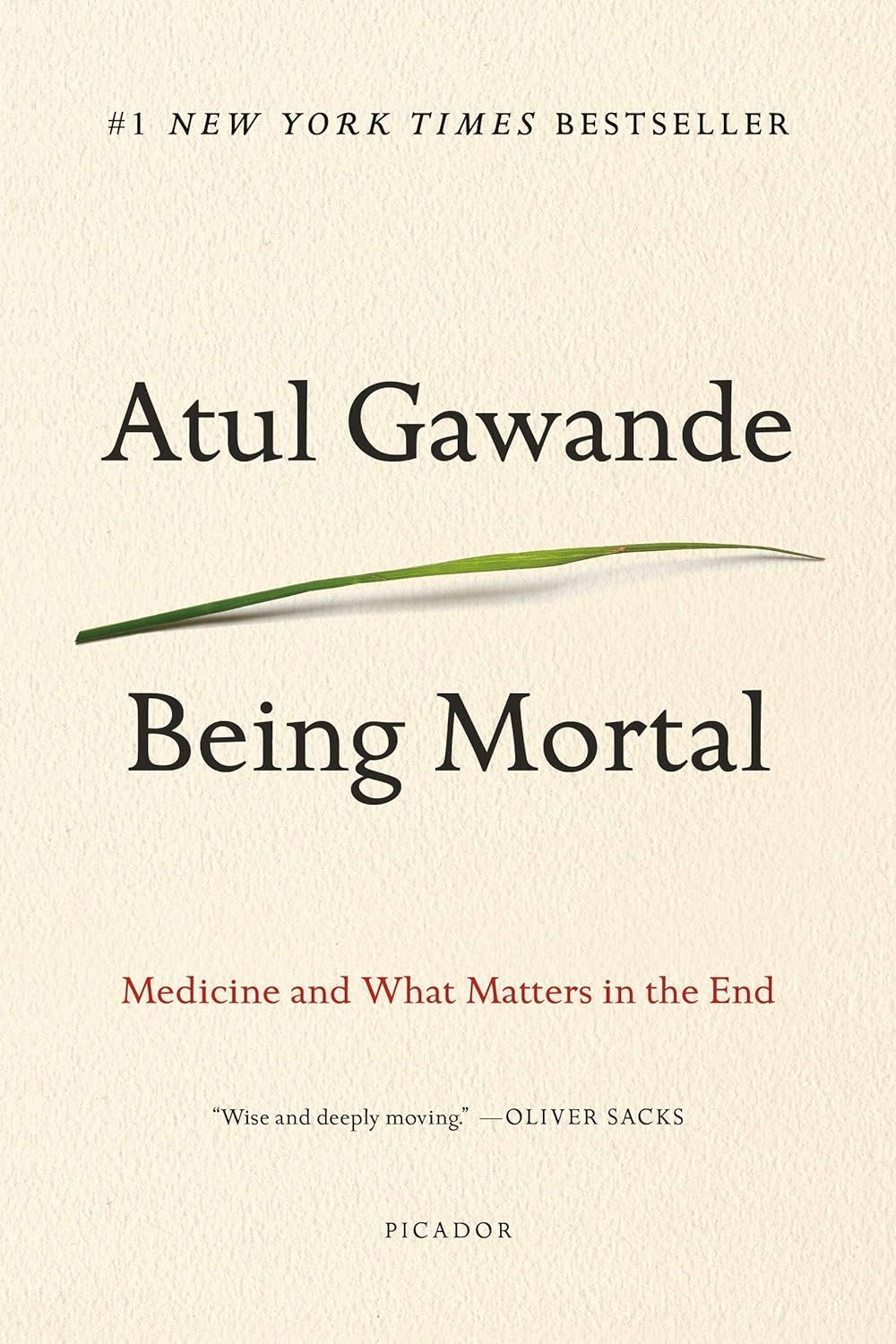
Written by a practicing surgeon, Atul Gawande writes about both the triumphs of modern medicine and its limitations, in particular, the suffering it may often produce at the end of life. He follows a hospice nurse on her rounds, a geriatrician in his clinic and tours nursing homes. From the perspective of a doctor, Gawande shares the discomforts of discussing with patients and their families — anxieties about death, false hopes and treatments, and how they may actually not only shorten life but also the quality of life. A must-read.v
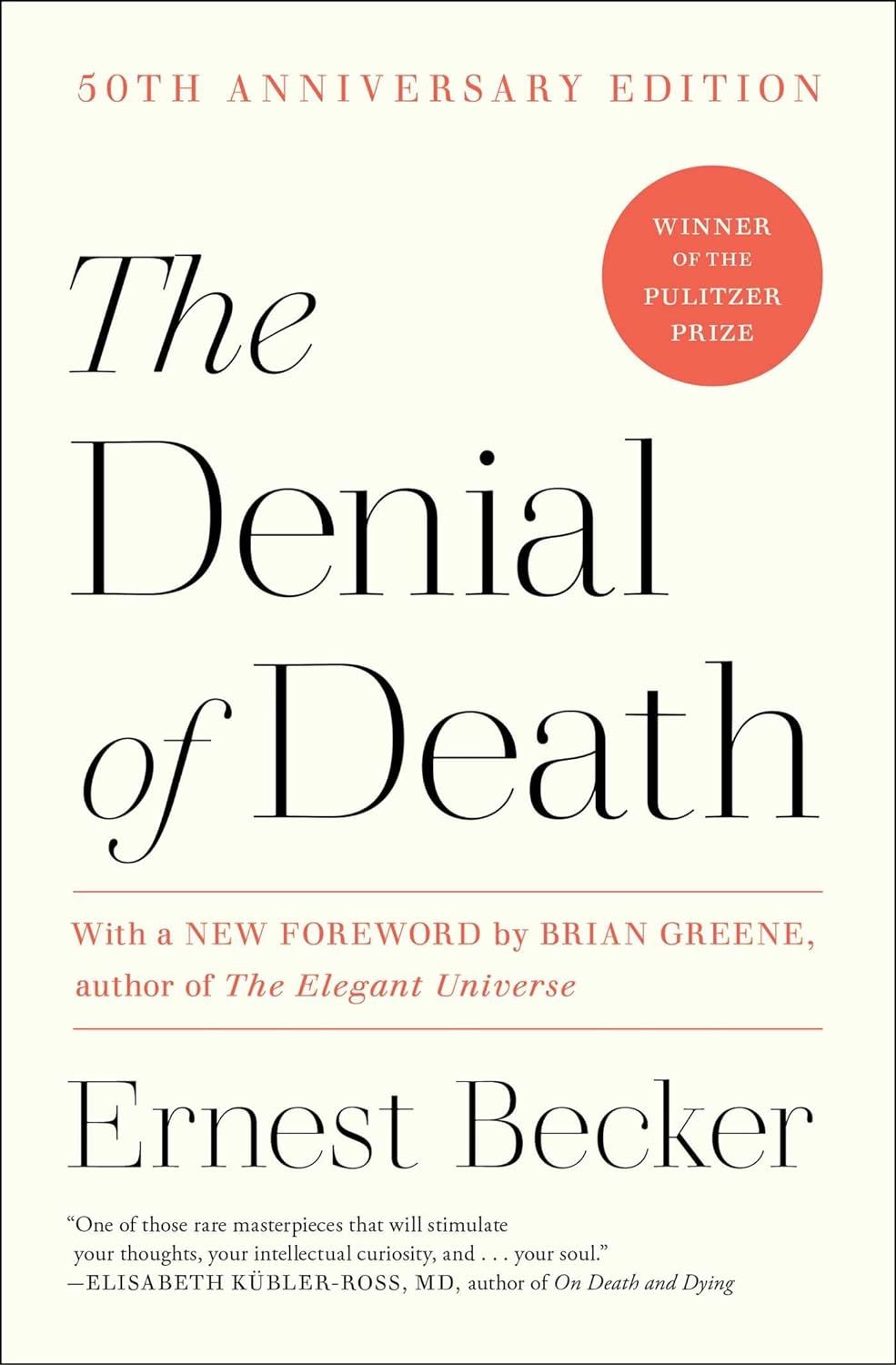
In the culmination of his life’s work, Ernest Becker seeks to answer the “why” of our existence in his book, The Denial of Death. Winner of the Pulitzer Prize in 1974, Becker sets forth the idea that our character is shaped around denying our own mortality, the cornerstone of Terror Management Theory (a field of psychology founded by three social psychologists in 1986 to test Becker’s ideas.) An academic, thought-provoking and insightful read. You can learn more about it here: [https://ernestbecker.org/]
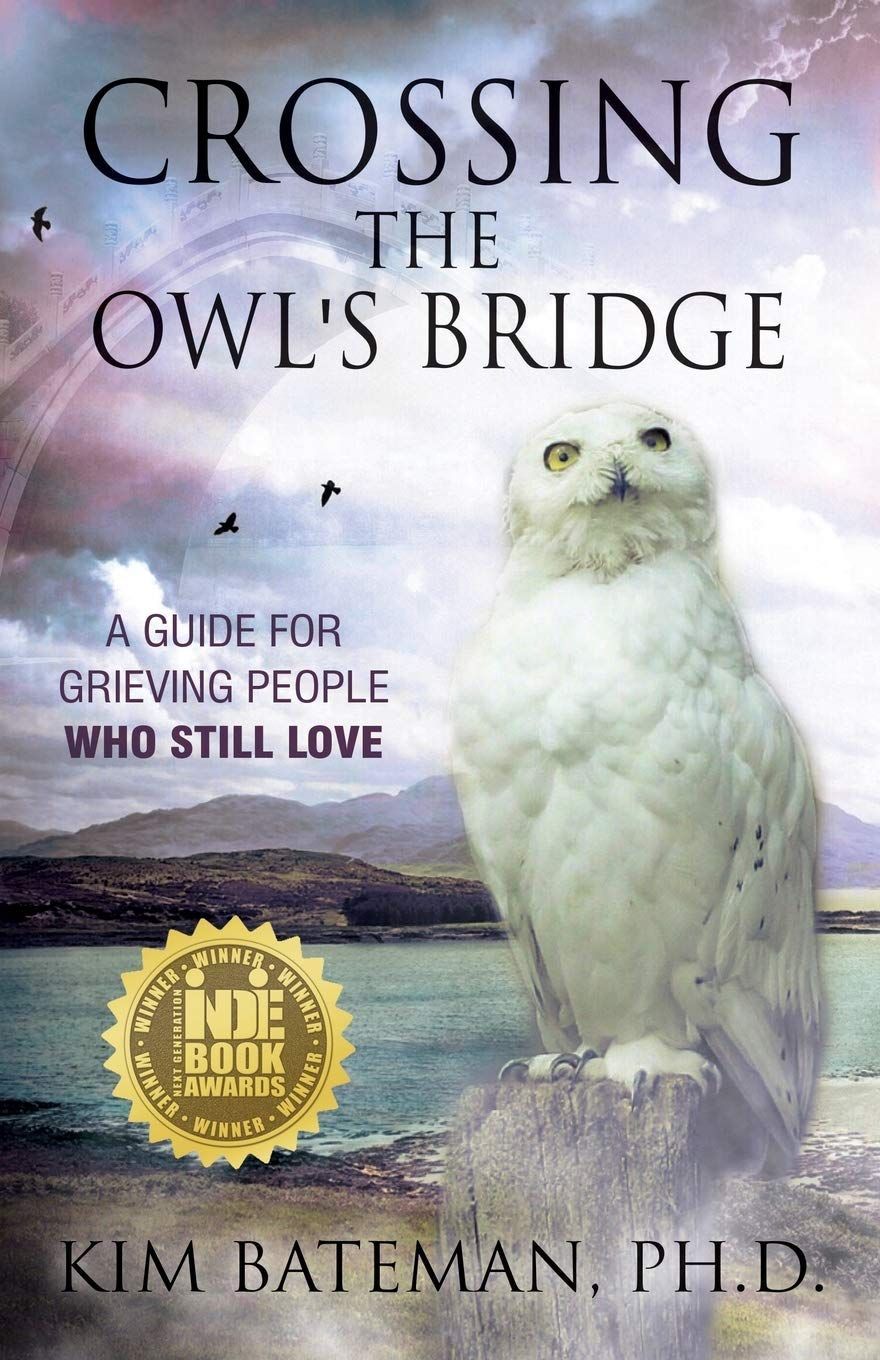
Written with compassion and love, Kim Bateman’s book, Crossing the Owl’s Bridge uses the wisdom of worldwide folktales on how to transform grief. With powerful storytelling utilizing folktales, each chapter provides psychological tasks as guidelines for application. You can also watch her YouTube, Singing Over the Bones [https://www.youtube.com/watch?v=P3hibkFcld0]
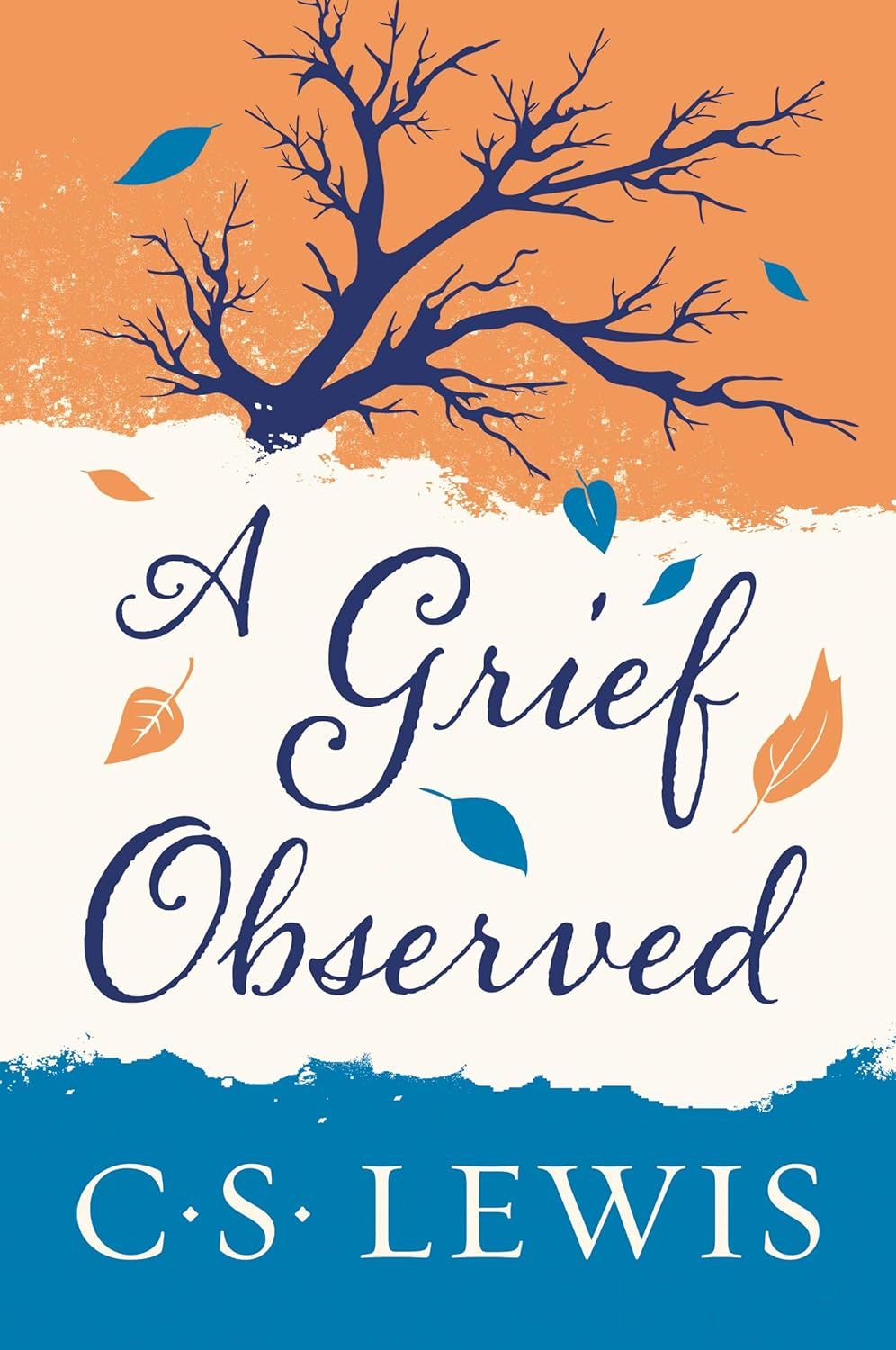
Following the death of his wife, the renowned author C.S. Lewis writes from his heart, and sometimes his anger, about the piercing pain of grief. Written almost in the fashion of a letter to grief and to God, Lewis vents and explores the loss and pain he feels in the absence of his wife. Lewis questions whether or not his life will ever return to normal again. He captures the bewilderment and despair he feels but ultimately feels gratitude for the experience of true love.
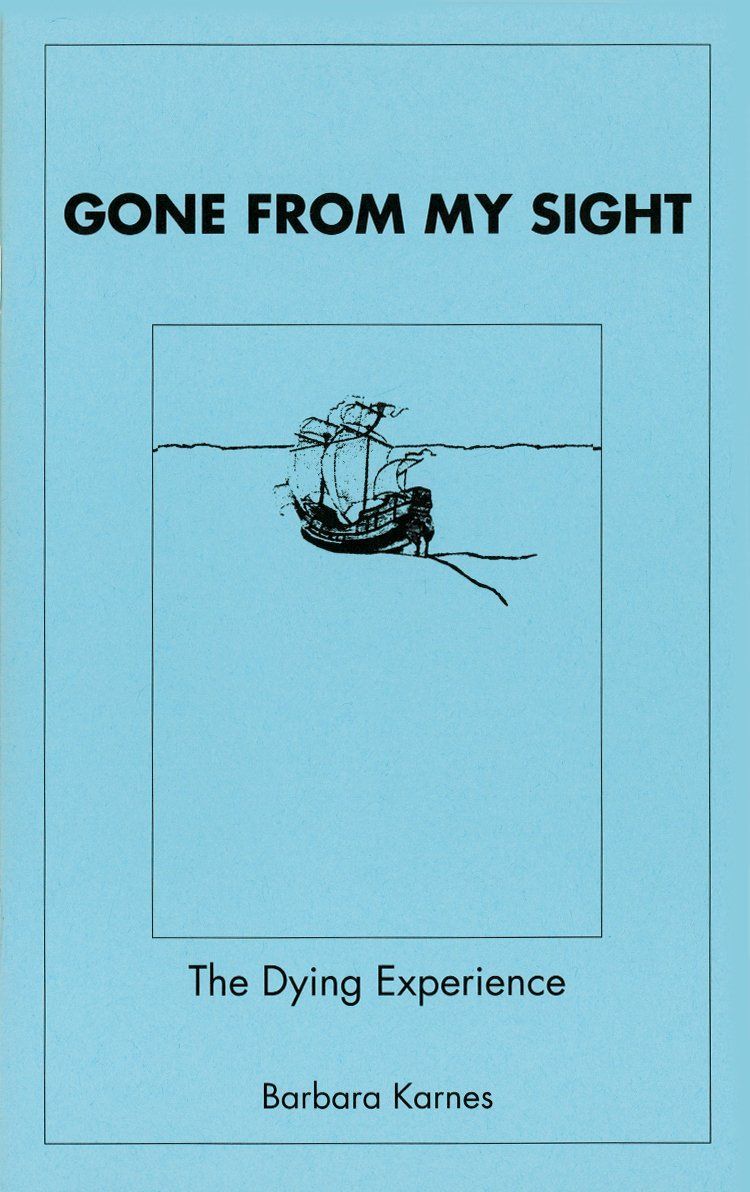
I first learned of Barbara Karnes’s Gone From My Sight: The Dying Experience when Jerry (Chapter 12, On Grief: A Love Letter from a Recovering Death Denier) was a patient at the Hilo Hospice House in Hilo, Hawaii. Shared with us as Jerry was nearing death, this booklet was a wonderful support as we were anticipating his passing. From Karnes’s experiences of being at the bedside of hundreds of dying hospice patients, she has written guidelines in easy-to-understand, non-medical language that help the reader understand what to anticipate months, weeks, days, hours, and the final minutes of what the dying may experience as they approach death. She has written several other booklets on the same subject but with a greater focus on pain management, dementia at the end of life, the final hours, and when our pets die. You can learn more about her on her website: [https://bkbooks.com/]
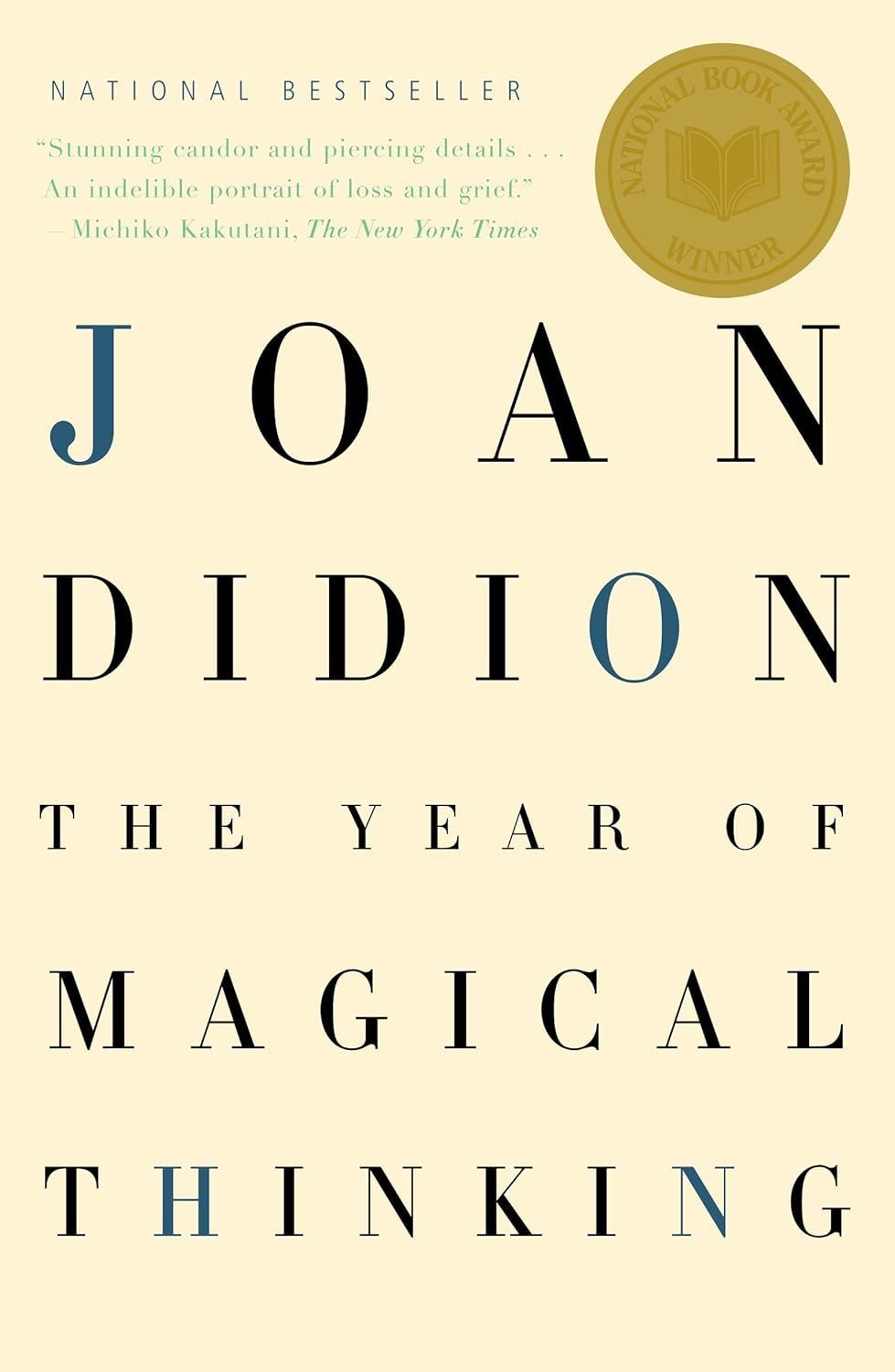
With her beautiful prose, Didion captures the pain, suffering and confusion of grief following the death of her husband of forty years. The author’s think-aloud, sometimes stream-of-consciousness writing captures how she feels, her straying thoughts, and the confusion that comes and goes throughout the year that followed her husband’s death. Winner of the National Book Award, The Year of Magical Thinking explores and captures Didion’s personal, yet universal, experience.
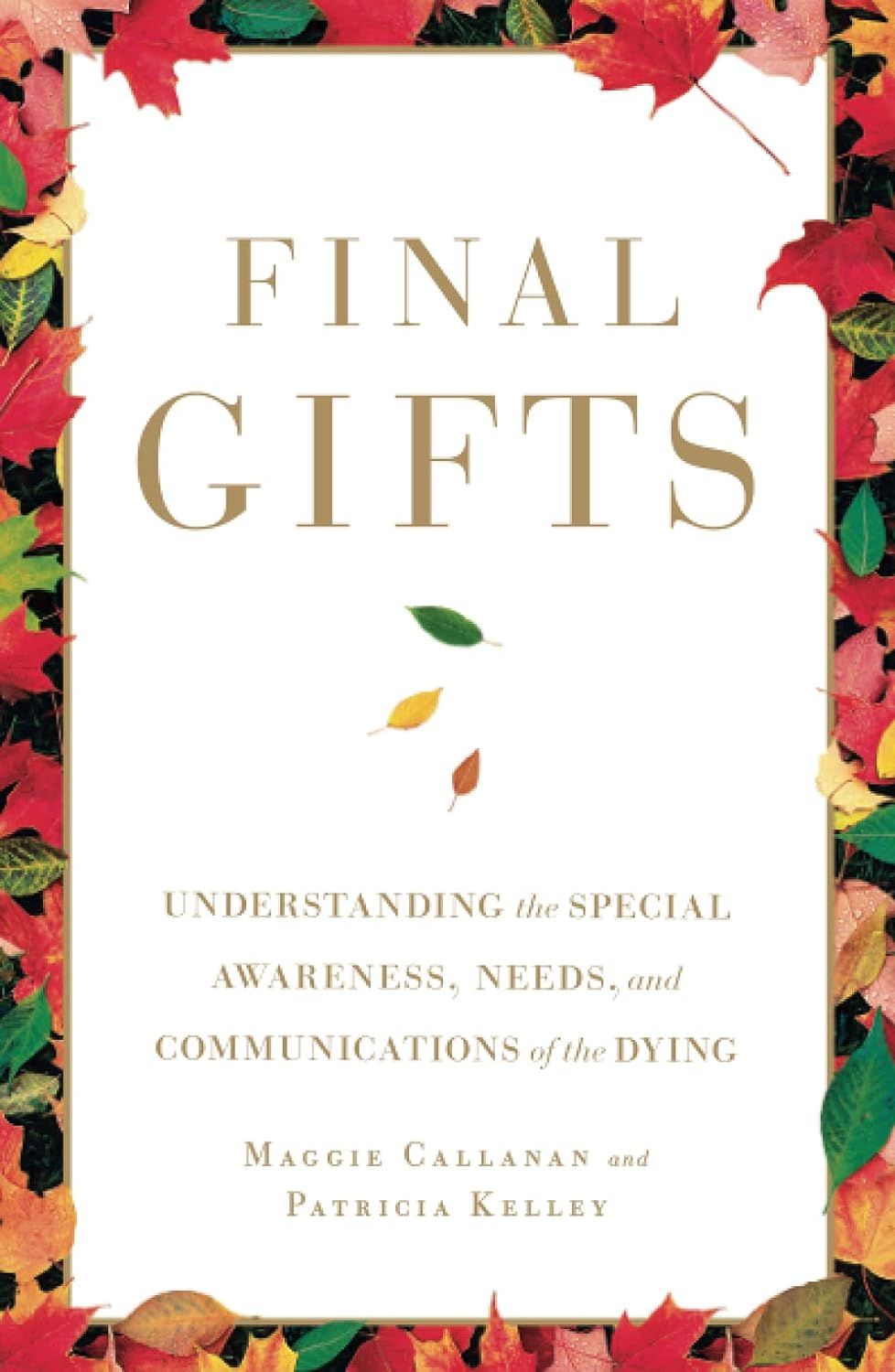
Drawn from more than 20 years of experience tending the terminally ill and their families, Callahan and Kelley, two hospice nurses, teach their readers how to appreciate the ways in which the dying communicate their needs and reveal their feelings as they near death. From their intimate experience with patients, the authors provide practical advice in responding to the dying. They provide suggestions for how to support and prepare their caregivers and families to aid the dying person to live fully to the end.


























